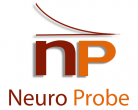Macrophages secrete matrix metalloproteinase 9 (MMP-9), an enzyme that weakens the fibrous cap of atherosclerotic plaques, predisposing them to plaque rupture and subsequent ischemic events. Recent work indicates that statins strongly reduce the possibility of heart attack. Furthermore, these compounds appear to exert beneficial effects not only by lowering plasma low-density-lipoprotein cholesterol but also by directly affecting the artery wall. To evaluate whether statins influence the proinflammatory responses of monocytic cells, we studied their effects on the chemotactic migration and MMP-9 secretion of human monocytic cell line THP-1. Simvastatin dose dependently inhibited THP-1 cell migration mediated by monocyte chemoattractant protein 1, with a 50% inhibitory concentration of about 50 nM. It also inhibited bacterial lipopolysaccharide-stimulated secretion of MMP-9. The effects of simvastatin were completely reversed by mevalonate and its derivatives, farnesylpyrophosphate and geranylgeranyl pyrophosphate, but not by ubiquinone. Additional studies revealed similar but more profound inhibitory effects with L-839,867, a specific inhibitor of geranylgeranyl transferase. However, α-hydroxyfarnesyl phosphonic acid, an inhibitor of farnesyl transferase, had no effect. C3 exoenzyme, a specific inhibitor of the prenylated small signaling Rho proteins, mimicked the inhibitory effects of simvastatin and L-839,867. These data supported the role of geranylgeranylation in the migration and MMP-9 secretion of monocytes.
http://www.jleukbio.org/content/69/6/959.long
